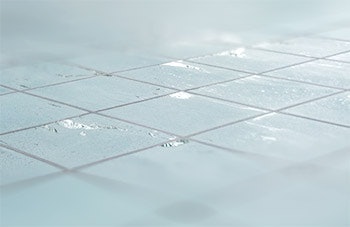
Wichita Falls, Texas, has struggled with drought for months. Stage 5 drought restrictions were implemented in mid-May, prohibiting homeowners from filling their pools unless using well water or hauling in water from elsewhere — and that costs a pretty penny.
But one local retailer/pool cover dealer found a way to make the best of the situation by selling winter pool covers to those who are choosing to keep their pools closed this season.
“It’s bringing us revenue by selling them a cover they probably would not have had otherwise, because these people are used to keeping their pools open year round,” says Paul Buckingham, owner of Outback Pools & Spas in Wichita Falls. “They’re going to put them on and wait until this whole thing is over, and then we can get their pools operating again.”
A Form of Protection
This isn’t the first drought Buckingham has seen, and he’s noticed a trend among his customers during drought conditions: For the most part, families with young children are likely to keep their pools open, taking on the extra cost to haul in water. Older customers with kids out of the house are more likely to forgo the pool season — and that’s when they talk to Buckingham about their options. During their conversations, he digs into the benefits of winter pool covers, impressing upon them the need to keep pools maintained for safety and health purposes.
“I say, ‘Listen, we understand you have water concerns, but you need to look at your pool as an investment. You can’t just let it go. It becomes a safety issue, a public health issue.’” Not only do winter covers protect children and pets from danger, they can protect the public from disease-carrying mosquitos that commonly breed in stagnant water.
“We’re saying you have an option,” Buckingham says. “We’ve been out there pushing our covers. We’re running TV and radio ads right now that say, ‘Hey, if you’re not going to operate your pool because of the drought, then protect it.’”
And sure enough, they are. Buckingham is on track to sell twice his usual number of pool covers this year.
A Personal Resource
For Buckingham, safety is just the beginning. He encourages his customers to see their pool as a personal cistern — should drought conditions worsen, the water can be drawn for bathing or flushing toilets.
“That water is their own reservoir in their own backyard,” he says. “I have a lot of people who are engineers, doctors, and once you describe it to them that way, it’s like a light bulb. They say, ‘I’ve never thought of it that way.’”
Buckingham goes with mesh covers during drought conditions, as water can pass through, but sunlight cannot. Then, by extending a rain gutter downspout from the home to the pool, the pool can collect rainwater through the mesh. However, the water below still needs to be treated and circulated to keep the water healthy.
“Once I explain that this water can become something that you may need to have if it gets worse before it gets better, then they realize, ‘Wow, it’s important for me to maintain this pool even if I have it covered,’” he says.
Going on vacation?
Finally, there’s an added benefit to winter pool covers: peace of mind during vacation.
“A lot of people take off for 10 days or even a week in summer, and everybody’s coming back to a green pool because their next door neighbor’s son forgot to add chlorine to it,” Buckingham says. “If they’re not using the pool, why not put the cover on?”
Buckingham and his team teach homeowners how to take the cover on and off, or they can hire the company to do it for them in about 20 minutes.
“A Necessary Component”
Some might think it’s a challenge to sell winter pool covers in the South, but Buckingham’s clever approach has encouraged customers to see benefits they had never considered.
“In the long run, and when we look at what they paid for their swimming pool or what it would cost to replace it, this is not a large investment for what it’s doing and protecting,” he says. “Don’t look at them as just winter covers. Look at them as a necessary component to every swimming pool.”
Comments or thoughts on this article? Please e-mail [email protected].












































